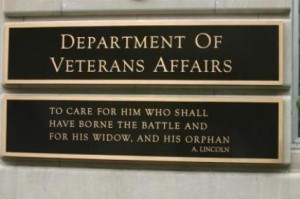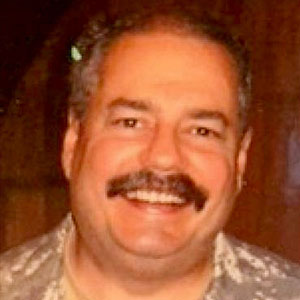 Excerpts from an Op-Ed by Congressman Gus Bilirakis with the hyper-optimisitic title, “Holding the VA Accountable.”
Excerpts from an Op-Ed by Congressman Gus Bilirakis with the hyper-optimisitic title, “Holding the VA Accountable.”
Good luck with that.
Earlier this year, a Department of Veterans Affairs Inspector General report found “serious” problems with enrollment data for veterans seeking healthcare. The VA’s inspector general confirmed that nearly 900,000 military veterans have officially pending applications for healthcare. Of those 900,000, an estimated 307,000 veterans listed died before their applications for care were processed.
Our worst fears were confirmed by these reports. Our efforts to improve the VA have taken on a greater urgency. ….
One concrete example of how Congress intervened to provide relief to Veterans was through passage of the Choice program, which was enacted a year ago. The law was intended to ensure veterans had better access to care through the use of community providers; however, its implementation has been woefully inadequate.
Just last week, we held a hearing to examine how the Choice program has been implemented. The testimony indicated that too many veterans are still struggling to receive care in a timely manner, as the VA has instituted many procedural barriers and demonstrated poor coordination and communication in all aspects of the program rollout.
via Holding the VA accountable | Washington Examiner.
This shouldn’t surprise Bilirakis, who is the vice-chairman of the responsible committee in Congress, for crying out loud. Indeed, his own constituents, he admits, are getting the usual $#+ sandwich service for which the VA is well known:
These concerns have been echoed by many local veterans from the Tampa Bay, Fla., area who report continued delays and unnecessary burdens accessing care. They are facing egregious wait times and lack of coordination between the VA and local healthcare providers when attempting to even set up appointments.
We’ve already announced a much better approach that Bilirakis’s idea of more grandstanding at more hearings. (It’ll be great for his re-election, no doubt, but won’t do a Goddamned thing for the vets). We take the moment to restate our policy here:
Burn it to the ground. Close VA. Fire every employee, with the same ban on government employment that the PATCO payroll patriots got after their illegal strike. (The good ones will land on their feet in the private sector. The bad 90% — who cares about them? Not the vets they’ve made a career of screwing. Screw ’em back). Give the eligible vets access to Medicare, like seniors. Sell the usable facilities and the land they’re on to the highest bidder.

Kevin was a former Special Forces weapons man (MOS 18B, before the 18 series, 11B with Skill Qualification Indicator of S). His focus was on weapons: their history, effects and employment. He started WeaponsMan.com in 2011 and operated it until he passed away in 2017. His work is being preserved here at the request of his family.

5 thoughts on “The Unaccountable VA”
I like all of it, except for the Medicare part.
Why not put vets on TriCare? It exists, vets are already familiar with the bureacracy, the system is already familiar with the problems that active duty and dependents face and it would simply be a matter of transfering the DVA’s budget to the TriCare line item in the budget.
Oh. That’s clever.
Burning the VA to the ground will not improve care for veterans; it will make it even worse. My opinion is based on: 1. doing my residency in a VA hospital 35 years ago 2. Serving in the US Navy until I retired 3 years ago, including 6 deployments to Afghanistan and Iraq with Marines and SF units, 3. working in a large urban VA Emergency Department since then, 4. going through the VA disability program myself, and 5. being seen here as a patient. First, I can’t comment on higher level corruption at the VA. That is way over my head, and my experiences in life have caused me to assume any government agency is essentially self serving and unconcerned with the people they are supposed to care for. The VA isn’t special in that regard. I can say the quality of the physicians and nurses I work with is overall the same as that in the civilian and military hospitals I’ve worked in. In my Emergency Department, about 2/3 of the full time physicians are veterans, and that makes a difference. Every few months I see someone who fought in the same areas I was in. A few times I’ve even seen veterans who were on some of the same missions I did. Being able to talk to them about shared experiences helped both of us. Shutting down the VA, and dumping them into a crumbling civilian system (including Tricare, which now pays providers less than Medicare and is not accepted by most of the providers where I live) won’t solve anything. The reasons for our disintegrating medical system are as numerous and as varied as they are self-inflicted, but that’s beyond my control. I understand why so many people dislike the VA, but I wish they could direct that frustration toward the politicians, unions, and special interest groups (including some veterans groups) that actually create the laws and regulations that the VA has to work within.
I just try to provide the best care I can regardless of how difficult the system makes it. And I’m grateful that I have a patient population that includes fellow veterans who deserve my loyalty; sadly I wouldn’t be able to feel that way as often in a civilian hospital.
Thanks for the insider perspective, Doctor Temerlin. I have to say of my two visits to a VA facility (during a period of unemployment, before I had the sort of success that makes those things easy to weather), one was abominable (Brockton, MA). Small Dog gets better care (but then, his vet works in a market much less distorted by insurance and regulation). The other one was outstanding (West Palm Beach, FL) and the many other vets I know in the area all seem similarly satisfied.
Maybe what we’re dealing with is the unintended consequences of Civil Service reforms of the 19th Century colliding with the government growth of the 20th. But it’s our problem now i the 21st.
I do note that civilian hospitals as much as VA and military hospitals (and both of them, as much as another highly subsidized and regulated field, higher education) are experiencing record levels of administrative bloat. Many efficiencies of modern businesses have come from flattening the organization and thinning the herd of indirect labor. A lot of those intermediate paper pushers, in the Dreaded Private Sector, have seen their jobs automated to a nullity. That may be how we innovate out of the problem in the 21st Century.
IMHO, nobody in the hospital should be paid more than the doctors, except for the one top dog. And he or she should be a doctor, not some soulless quant of an MBA.